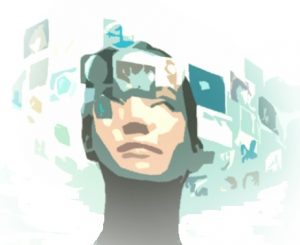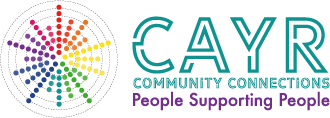 I will be the first to admit that I am not an expert when it comes to HIV/AIDS; though I will say that I have learned quite a bit since joining the ACYR team. Part of me though has to wonder, what exactly makes an expert t? Is it Research? Education? Lived Experience? They say that an expert is a person who has a comprehensive and authoritative knowledge or skill in a particular area, but I think also that there is almost always someone out there with a better understanding or way of thinking. The word ‘expert’ kind of creates a sense of ‘the one’ who is greater and knows all over others… and I don’t know if that is true.
I will be the first to admit that I am not an expert when it comes to HIV/AIDS; though I will say that I have learned quite a bit since joining the ACYR team. Part of me though has to wonder, what exactly makes an expert t? Is it Research? Education? Lived Experience? They say that an expert is a person who has a comprehensive and authoritative knowledge or skill in a particular area, but I think also that there is almost always someone out there with a better understanding or way of thinking. The word ‘expert’ kind of creates a sense of ‘the one’ who is greater and knows all over others… and I don’t know if that is true.
Research is the investigation into and study of materials and sources in order to establish facts and reach new conclusions. It comprises “creative work undertaken on a systematic basis in order to increase the stock of knowledge and to devise new applications.
Education is the process of facilitating learning and building knowledge, skills, values, beliefs, and habits through storytelling, discussion, teaching, training, or research. Education frequently takes place under the guidance of educators, but learners may also educate themselves. It is commonly and formally divided into stages of schooling and/or such things as apprenticeship or placements.
Lived Experience is used to describe the first-hand knowledge of states, situations, emotions, or sensations and impressions. It is a reflective or self-given awareness. Every lived experience is slightly different and can offer new perspectives and opinions. Real world type stuff.
Research is good; education is great; and lived experience…. well, it can be an avenue of great expertise, it can lend to growth and inspiration, but depending on what kind of “lived experience” we are referring to, it can also be a struggle, challenging, depressing…..
In this case, we are talking about HIV/AIDS. I can add my two cents through things like gained research and education, but only little lived experience. What lived experience you might ask? No, I am not living with HIV nor am I a caregiver to someone of that status. Does it matter? I do care enough to try and understand, I work at an AIDS service organization and I have met quite a few individuals who have taught me some things and have opened my eyes.I have also survived my own personal tragedy that is different, but also somewhat similar. I live with a brain injury and in turn a learning disability that follows me around whether I want it to or not. I understand things like struggles, challenges, depression, the fear of stigma, the hope for inclusion.
I recently spoke at a conference during June’s brain injury awareness month, the presenters lined up were a neurologist, a therapist, a researcher and me… talking to the life I’ve lived and what I’ve learned. Who was the most-well received? I’d like to say me of course, but, I think everyone offered a different value.
My point is that while lived experience can offer certain knowledge and understanding, as can research and education, the idea of letting down guards and stepping into and/or considering each of the three avenues (Research, Education and Lived Experience) as being just as important as the other, I think is the best path to take in becoming an expert. But even then… I still wonder why it just can’t be about one person sharing with another and everyone having an open mind toward what others can offer.
By Mark Koning
Mark is the Communications & Administration Coordinator with the AIDS Committee of York Region. Mark is also an Author and Blogger of Challenging Barriers and The BIST Blog. (Brain Injury Society of Toronto)





